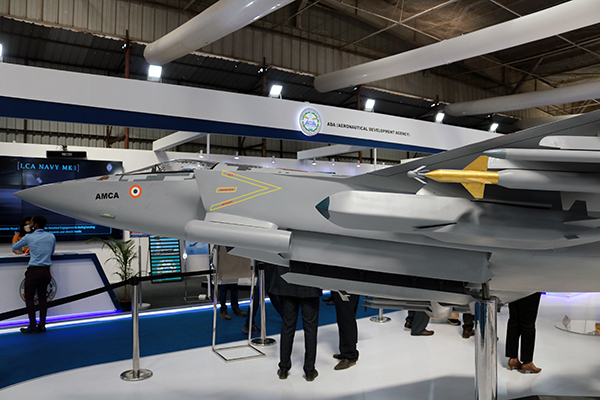SOURCE: RAUNAK KUNDE / NEWS BEAT / IDRW.ORG

The Indian Defence Research and Development Organization (DRDO) has hit a snag in its efforts to secure Cabinet Committee on Security (CCS) approval for the twin-engine advanced medium combat aircraft (AMCA) program, casting a cloud of uncertainty over the project’s timeline. The AMCA, designed as a fifth-generation stealth fighter, is eagerly anticipated, but bureaucratic processes have slowed its development.
The prototype of the GE-414-powered AMCA is slated to roll out by 2026. However, CCS clearance, a vital step in the process, has been pending for the last six months. The delay has left many in the defence community concerned about the future of this crucial program.
According to insiders, the Ministry of Defence (MoD) is waiting for the conclusion of a deal between DRDO and Safran for the development of a new engine. This deal, expected to be finalized in the coming months, is crucial as it aims to co-develop a new engine for the AMCA program. However, this endeavour is estimated to require an additional $5 billion, in addition to the $1.8 billion requested by the Aeronautical Development Authority (ADA) for the development of prototypes and pre-production AMCA aircraft.
The AMCA program is expected to take another 36 months post-CCS clearance before the prototype is rolled out. Moreover, it may require an additional year before it completes its first flight. Therefore, if CCS clearance is granted by mid-2024, the rollout of the prototype is expected only in mid-2027, with the first flight taking place in late 2028.
The AMCA program is highly anticipated as it represents a significant step in India’s efforts to bolster its indigenous defence capabilities. The fifth-generation stealth fighter is expected to play a crucial role in the country’s air defence strategy. However, bureaucratic delays in securing the necessary approvals are causing concerns within the defence community.
It remains to be seen when the CCS will approve, allowing the AMCA program to move forward. The delay underscores the challenges faced by defence development projects in India and the need for streamlined processes to ensure the timely and efficient development of critical defence assets.
NOTE : Article cannot be reproduced without written permission of idrw.org in any form even for YouTube Videos to avoid Copy right strikes. Websites doing illegal reproductions will get DCMA and Legal Notices.